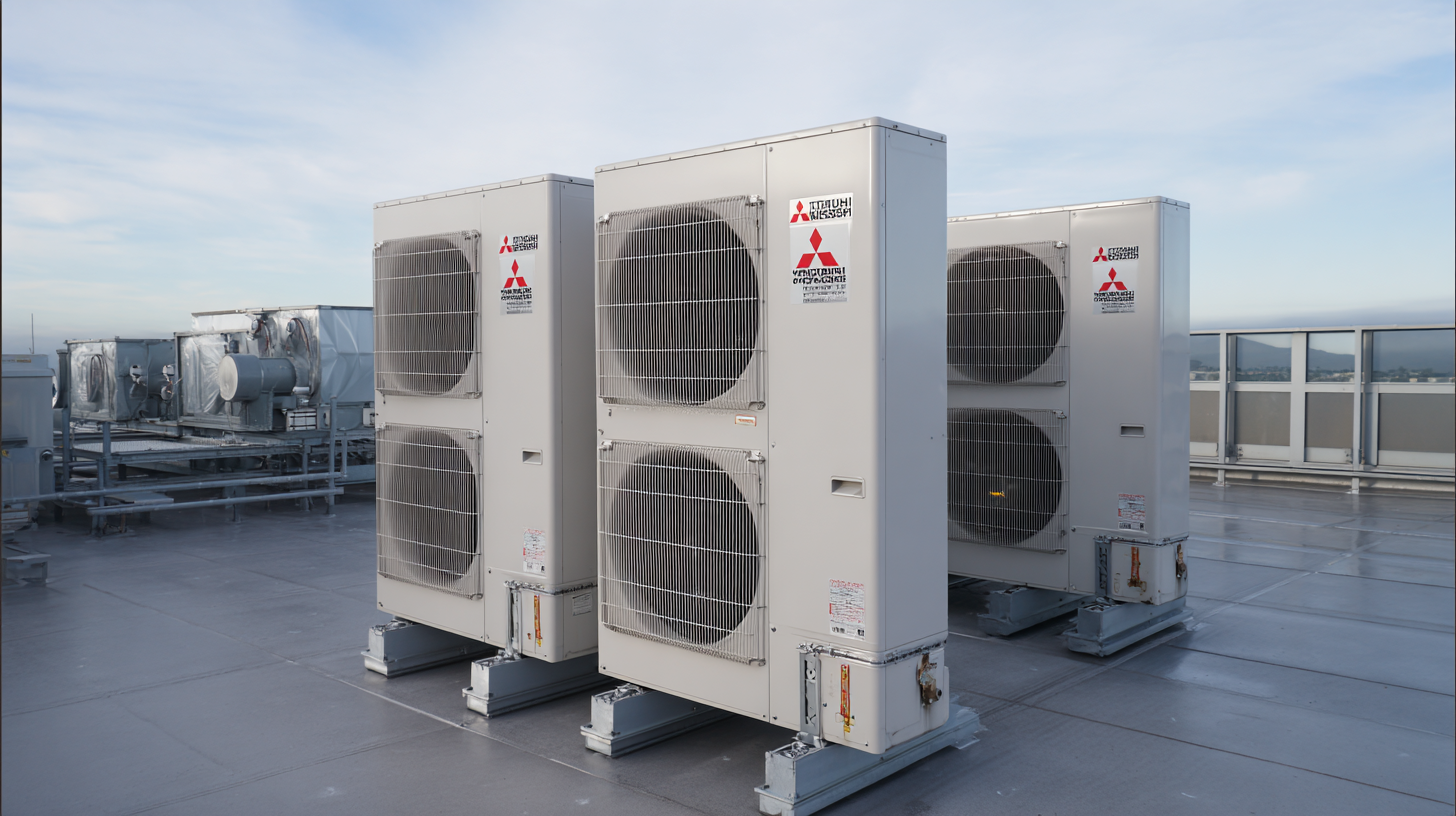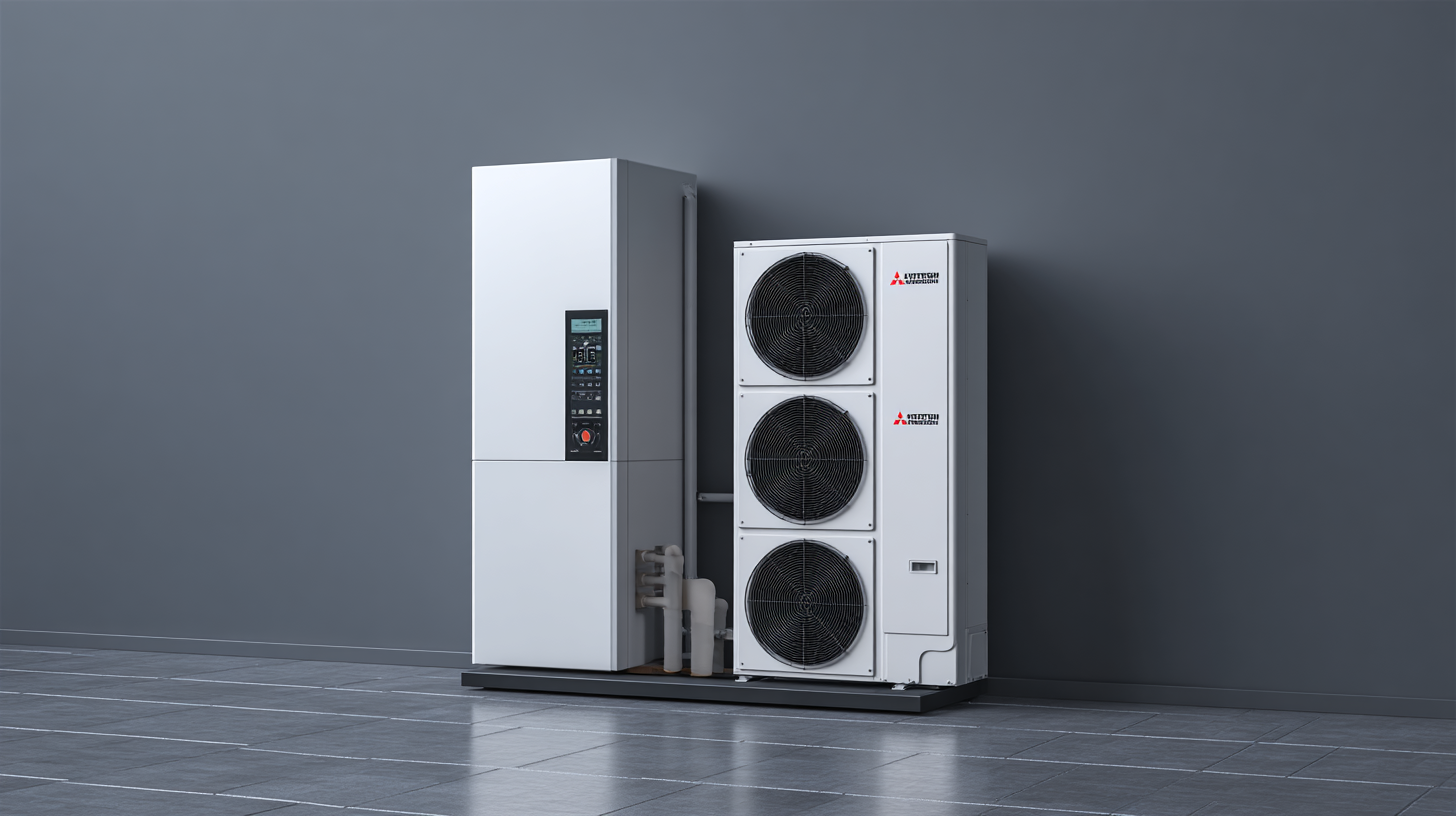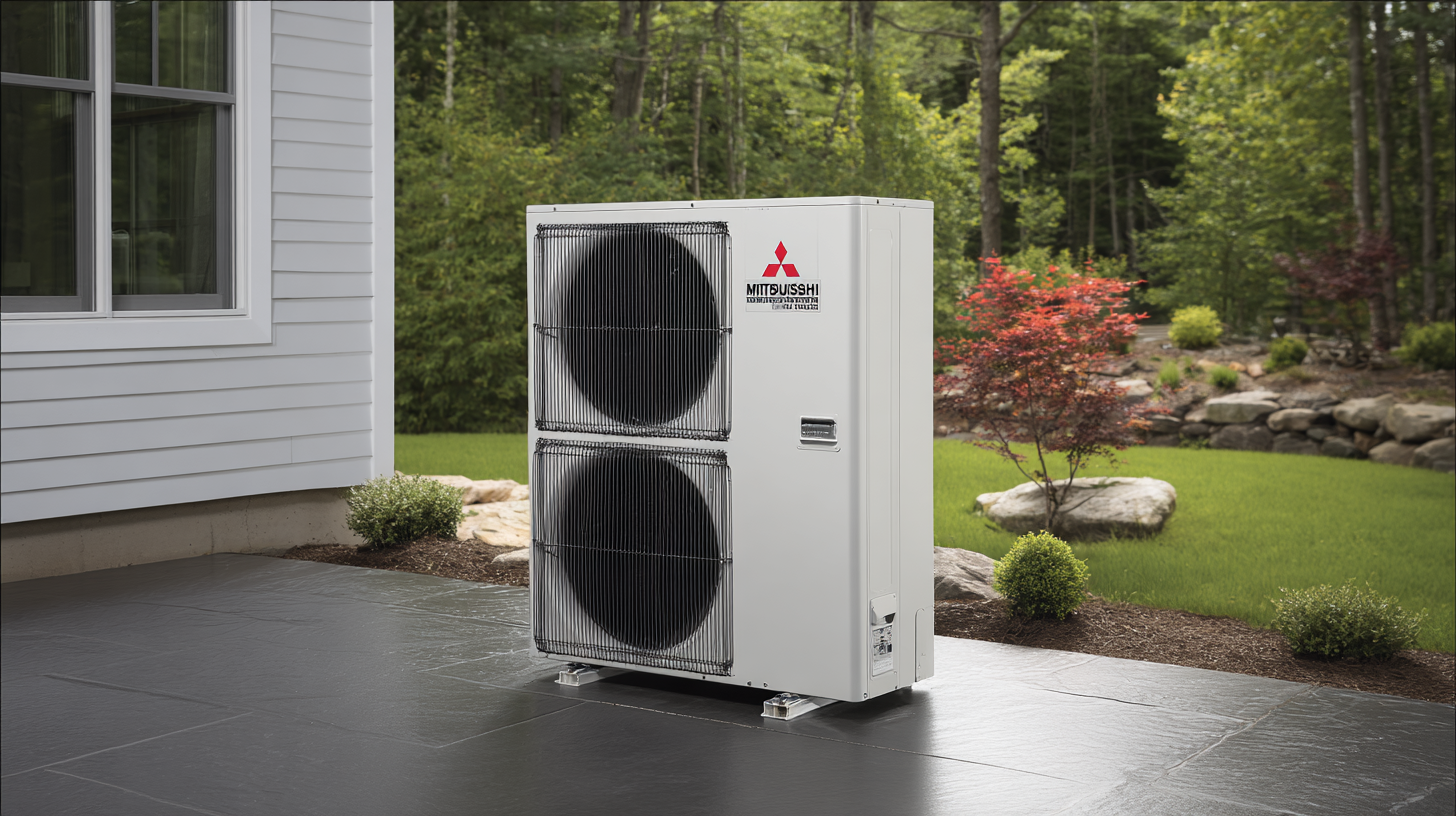


In an era where energy efficiency and sustainability are paramount, the demand for high-quality heating solutions has surged globally. Mitsubishi Heat Pumps have emerged as a leading choice for both residential and commercial applications, designed to provide reliable and efficient temperature control. According to the International Energy Agency (IEA), heat pumps can reduce energy consumption by up to 50% compared to traditional heating systems, highlighting their potential in promoting energy savings and lowering greenhouse gas emissions. As Chinese manufacturers continue to enhance their production capabilities and adhere to stringent international standards, Mitsubishi Heat Pumps exemplify a commitment to excellence in design and performance. The slogan "Made in China, Shared Globally, Quality You Can Trust" captures the essence of this progress, assuring consumers of the reliability and efficiency of these innovative products while maintaining compliance with industry norms.

When selecting the best heat pump, understanding the importance of industry standards is crucial. These standards not only ensure compliance but also guarantee that the equipment performs efficiently and sustainably.
Recent developments highlight that high-temperature heat pumps are set to play a vital role in meeting EU emissions targets, underscoring the need for stringent industry criteria. As more households look to upgrade their heating systems, adherence to these standards will help them save money while promoting cleaner energy solutions, with projections indicating that up to 300,000 homes could benefit from these upgrades next year.
Tips for selecting a heat pump: always verify that the unit complies with recognized industry standards such as the Energy Star rating and the relevant CE marking. Furthermore, look for manufacturers that prioritize sustainability, as this can often indicate better energy efficiency and lower operational costs over time. When assessing performance, consider products with inverter technology, which can significantly reduce energy usage across varying climate zones. By focusing on compliance and high efficiency, you can ensure that your investment is both economically and environmentally sound.
When searching for a high-quality Mitsubishi heat pump, it's crucial to focus on key features that define efficiency and reliability. One standout aspect is the energy efficiency rating (EER). A higher EER indicates that the heat pump uses less energy to deliver the desired heating or cooling, making it not only eco-friendly but also cost-efficient in the long run. Additionally, look for models equipped with advanced inverter technology. This feature allows the heat pump to adjust its speed according to the need for heating or cooling, ensuring consistent comfort while reducing energy consumption.
Another essential feature is the versatility in operating modes. The best Mitsubishi heat pumps come with multiple modes such as heating, cooling, and dehumidification. This flexibility ensures all-year-round comfort, catering to varying climatic conditions. Furthermore, consider units with smart technology integration. Models that are compatible with smart thermostats or home automation systems provide users with the ability to control the temperature remotely, enhancing convenience and energy management. Selecting a Mitsubishi heat pump with these top features will ensure compliance with industry standards while maximizing performance and comfort in your home.
 Energy efficiency regulations are increasingly shaping the HVAC industry, particularly in the realm of heat pumps. Mitsubishi heat pumps have been designed with compliance at the forefront, ensuring they meet and often exceed stringent energy efficiency standards. This commitment not only helps in reducing operational costs for consumers but also plays a significant role in minimizing greenhouse gas emissions, paving the way for a more sustainable future.
Energy efficiency regulations are increasingly shaping the HVAC industry, particularly in the realm of heat pumps. Mitsubishi heat pumps have been designed with compliance at the forefront, ensuring they meet and often exceed stringent energy efficiency standards. This commitment not only helps in reducing operational costs for consumers but also plays a significant role in minimizing greenhouse gas emissions, paving the way for a more sustainable future.
The incorporation of advanced cooling technologies and waste heat reuse strategies in Mitsubishi heat pumps exemplifies their alignment with current energy efficiency regulations. As the global focus shifts towards reducing carbon footprints, the ability of these systems to efficiently utilize energy resources makes them a viable choice for both residential and industrial applications. Moreover, with the anticipated growth of the HVAC market and technological advancements, Mitsubishi's offerings reflect a proactive approach in adapting to evolving energy standards, further solidifying their position in the competitive landscape.
When choosing a heat pump, adhering to industry standards is essential for ensuring optimal performance and safety. Industry-compliant heating solutions, such as the Mitsubishi heat pump, offer several key benefits that enhance the overall heating experience. One significant advantage is energy efficiency. Compliant systems are designed to meet stringent efficiency benchmarks, which can lead to lower energy bills and a reduced carbon footprint.
Tip: Always check for certifications such as ENERGY STAR ratings when selecting a heat pump. These certifications indicate the system's compliance with high-efficiency standards and can help you make an informed decision.
Another benefit is the reliability of service and support. When you invest in a product that meets industry standards, you're more likely to receive better maintenance support and warranty protection. This ensures that you have access to professional help when needed, resulting in less downtime and prolonged lifespan of the unit.
Tip: Look for manufacturers that provide comprehensive warranty options and customer support. This can be a significant factor in your satisfaction and long-term investment in heating solutions.
| Feature | Importance | Benefits |
|---|---|---|
| Energy Efficiency Ratings | Mitigates energy costs and environmental impact | Lower utility bills and reduced carbon footprint |
| Safety Certifications | Ensures appliance safety for users | Peace of mind and reduced risk of hazards |
| Environmental Standards | Help reduce harmful emissions | Compliance with regulations and sustainability goals |
| Warranty and Support | Indicates product reliability and manufacturer backing | Long-term investment security and reduced maintenance costs |
| Innovative Technology | Enhances performance and adaptability to home needs | Improved comfort and operational efficiency |
The market for heat pumps is experiencing significant growth, driven by rising energy costs and increasing environmental concerns. According to a market analysis by Custom Market Insights, the global commercial HVAC market is projected to reach approximately USD 78,450.1 million by 2033, growing at a CAGR of 2.5%. This growth reflects a broader trend in HVAC technologies, where heat pumps are increasingly favored for their efficiency and reduced carbon footprint, positioning them as leading contenders in various applications, from residential to commercial use.

In North America, the heat pump market is expected to exceed USD 50 billion by 2025, spurred by supportive government incentives and a strong push for energy-efficient solutions. The residential heat pump sector alone surpassed USD 38.7 billion in 2023 and is forecasted to grow at around CAGR of 13.9% from 2024 to 2032. This booming demand highlights how leading manufacturers are not only competing on the basis of product efficiency and compliance with industry standards but are also focused on ensuring their offerings meet evolving environmental regulations. As this market continues to develop, insights into competitors and their adherence to industry standards will be crucial for businesses aiming to capture market share.
